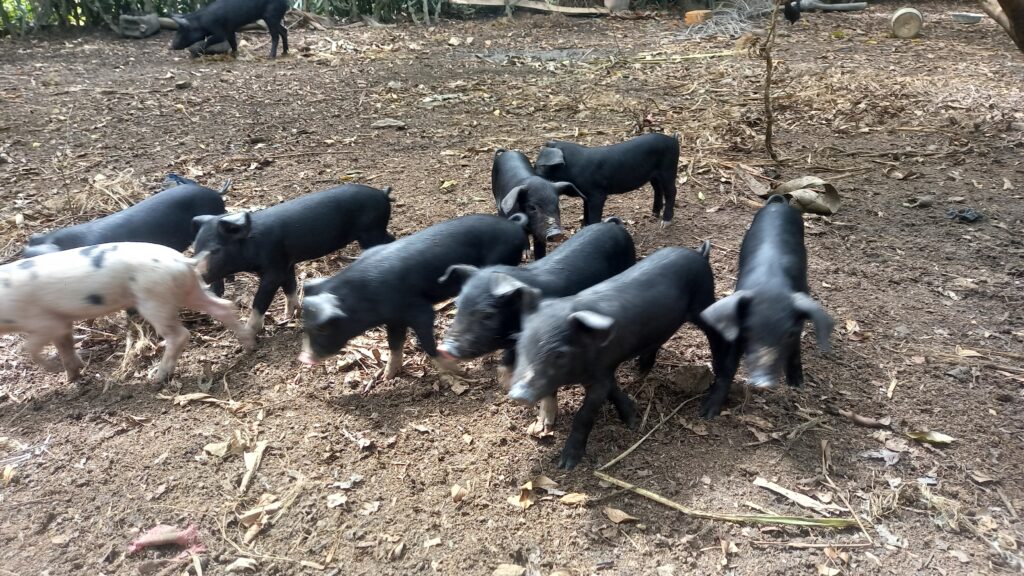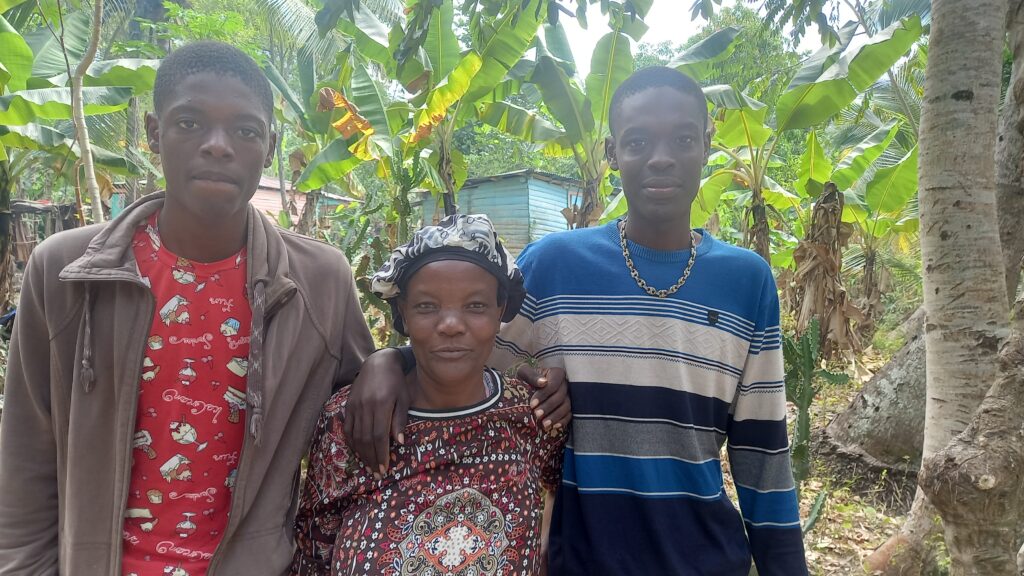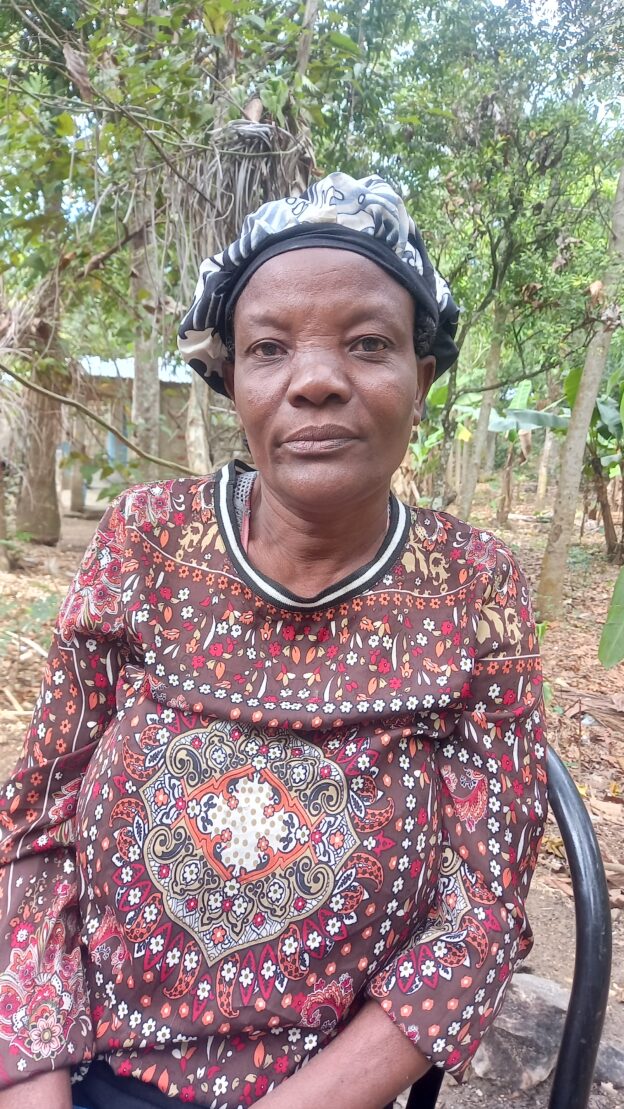Jocelyne has been a widow since 2019. She lives with her six kids and her mother along a dirt road that leads into downtown Laskawobas from the east. Until recently, only her three younger children lived with her and her mother, who is showing signs of dementia.
The three older ones lived in the Pòtoprens area, with her sister. There they went to school there with her sister’s help. Jocelyne couldn’t afford to send them. But her sister lives in central Kwadeboukè, in an area controlled by one of the many gangs who dominate much of the Pòtoprens area now. Her kids felt unsafe, and she was scared to have them there, so she made them come home. Seven dependents is a lot for her to manage, but she did not feel she had a choice.
Before she joined the program, she fed her family with a small business on the road in front of her home. She made pate, a fried pastry popular as a snack food in Haiti. They are usually filled — with meat or eggs — before they are fried. But Jocelyne filled them with neither. “I couldn’t afford to buy meat or eggs. I just put a little dried herring in mine.” She took care of a pig, but it didn’t belong to her. It was, however, a reason for hope, because those who take care of livestock for others a generally paid in kind. Jocelyne had a chance at owning her own pig whenever the sow in her care might have a litter.
She asked the CLM team to buy her goats. She received two, but one died. When her case manager was ready to replace it for her, she asked whether she could have money to start a business instead. Her case manager agreed, and she started selling cold soft drinks.
That business worked well, but there was a problem. The drinks sold well whenever there was a public gathering, like a cock fight or a wake. But in her neighborhood, there were too many days with nothing going on.
So she came up with another idea. The Dominican border is not far from her home. She began buying basic groceries in Elias Piña, in the DR. A lot of goods are cheaper there than in most places in Haiti.
And she came up with a unique way to sell them. She goes door-to-door offering her wares. Her clients do not pay her right away. She makes a second visit to collect what the owe the day before she is to go back to Elias Piña. She says that her clients pay on time. “I don’t really give them a lot,” she explains. So her new business keeps the cash she needs coming in. When there is an event in the neighborhood, she can still buy soft drinks for the occasion.
But though the business helps her with a steady income stream, it is not her principal success. When she was evaluated for graduation, she had 105,000 gourds in assets. That’s over $800. The program had given her business assets worth just 18,000 gourds.
Her spectacular growth depends on livestock. With profit from her business, she bought a sow. She bought another with a loan from her savings and loan association. She now has four sows, one of which has a litter of eight piglets trailing behind it.

She serves as the president of the association, and she opened two accounts in it. That means she can save twice as much each week as most of her fellow members. “I had been in an association before, though it hadn’t really worked. I thought that with my case manager there I could use it as a good way to save.”
Her first priority with the money she saves was to make sure she can always pay for her children’s school. It gets to be a lot. That’s how she used most of her savings at the end of the association’s first 12-month cycle. But she should have enough money when the next cycle ends to buy a cow, an important goal. “My house belongs to me, but I rent the land it’s on. A cow could help me buy my own land.”


Amazing success! What a great story! Chemen Lavi Milo empowers women to independence!